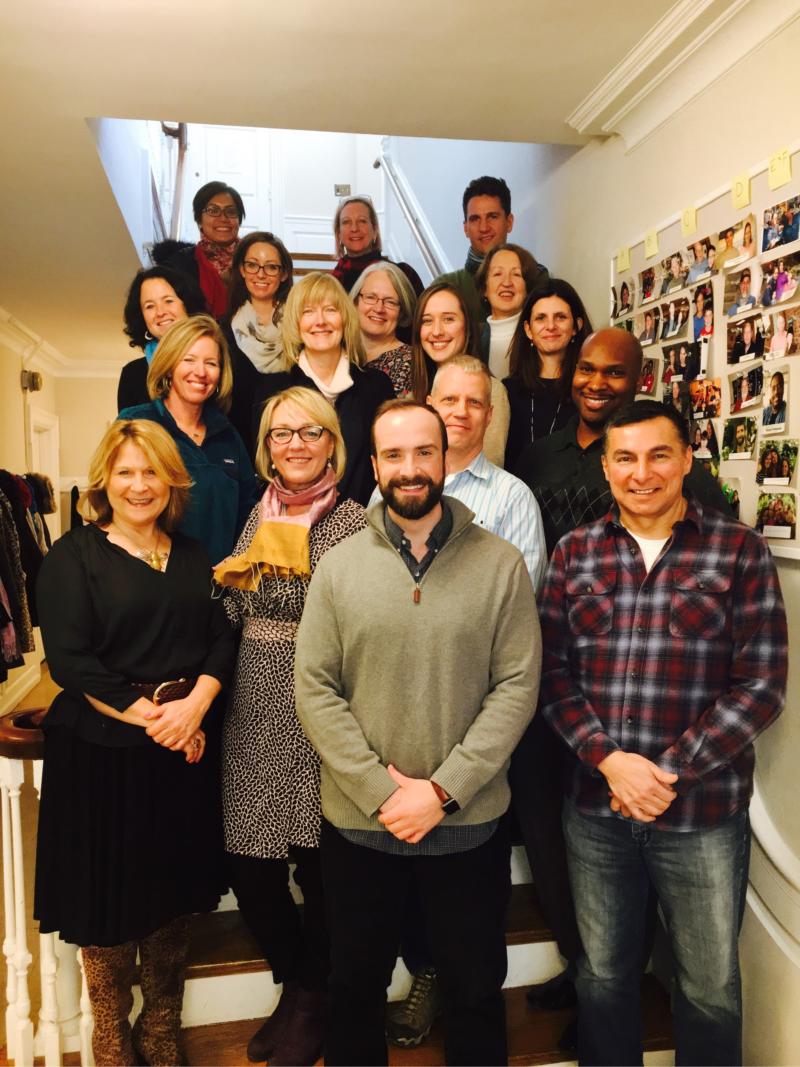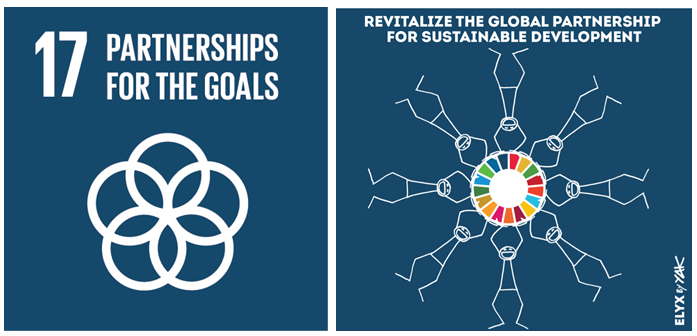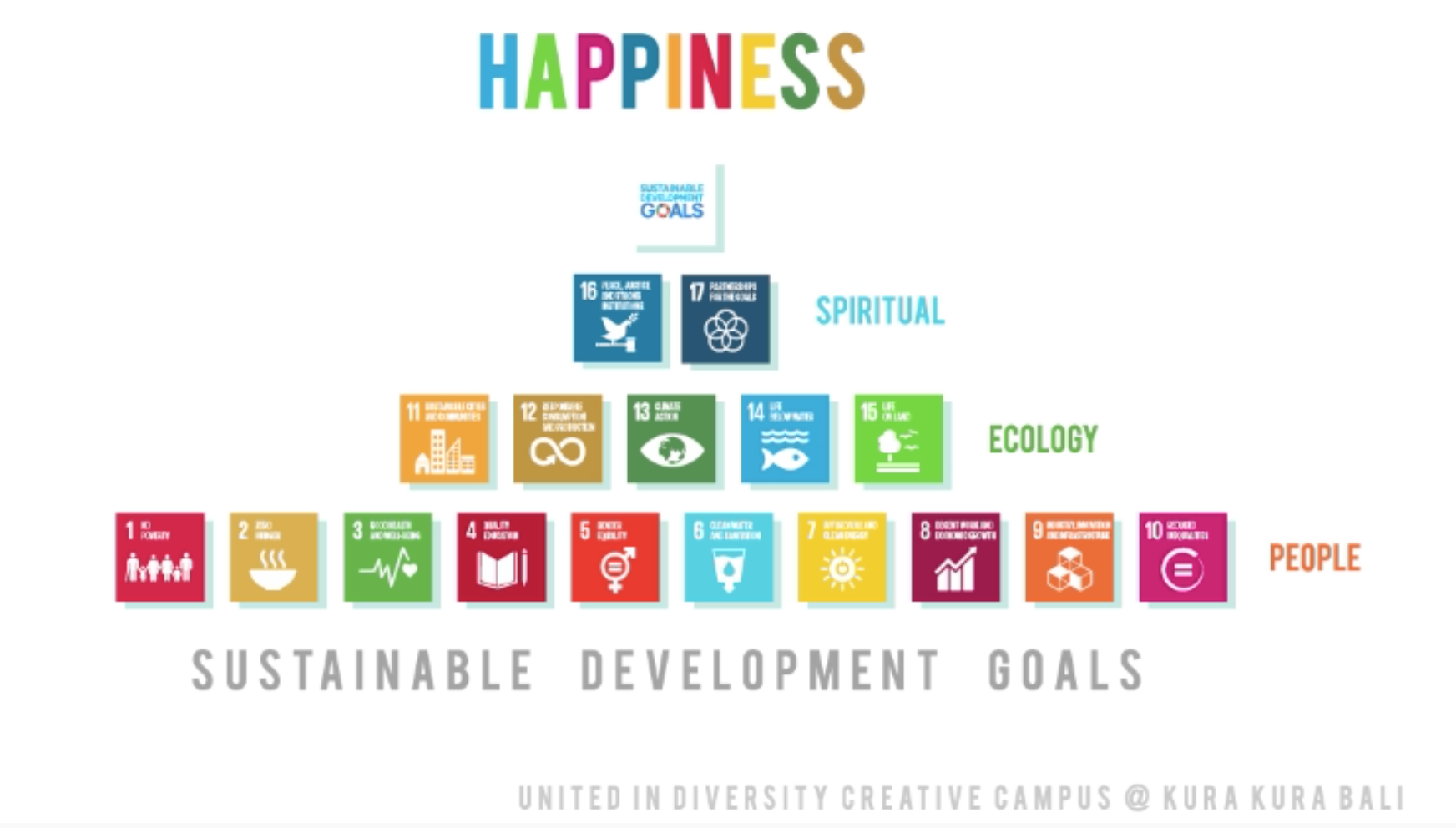Want to create a more inclusive and sustainable world? Then collaborate.
by Michelle Halse
From community organisations to the United Nations, working together is critical if we are to create a more inclusive and sustainable world. In fact, we’d even argue that addressing the big challenges that the world is facing right now is only possible if we work together, if we collaborate.
Otto Scharmer, author of ‘Theory U’ and Co-Founder of U.Lab recently observed in his piece ‘Trump, Dark Money, and Shifting Consciousness’ that we have seven ‘gifts’, or encouraging signs, currently seeding in the world. They include, among others, the rise of cross-sector collaboration and bringing together partners from across business, government and civil society. It’s a scary time that we’re living in, but it’s also one filled with possibility.
In many ways, the Sustainable Development Goals (SDGs), ratified by the UN in 2015, set the stage for the world’s biggest collaboration. Across borders and across industries, organisations, networks, groups and citizens are coming together to take action for people and the planet before it’s too late. One thing is for certain: we will not be able to reach any of these goals by acting alone. As Scharmer points out, “achieving the intended impact will require new collaborative structures across all sectoral boundaries. The emergence of such cross-sector initiatives is one of the most remarkable sources of hope in our time.” We agree, and these stories of collaboration and shared effort are worthy of our attention and sources of great hope for us at Living Collaborations.
During a recent trip to Washington DC, our Founding Director Michelle Halse was fortunate enough to connect with a large number of inspiring and motivated groups who are making meaningful progress on the SDGs in multi-stakeholder collaborations.
There was Novozymes – a Danish biomedical company who shared in front of a packed house at Global Partnerships Week how they took what they’ve learned from collaborating with others and built it into their organisational DNA so they may deepen their understanding of the world they live and work in. They shared the example of their work with schools in Brazil integrating the teaching of biotech and sustainability into class work to inspire the next generation of scientists. This was followed by an example from their work with the textile industry in Tiripur, India, to adopt enzymatic technologies (in dyes) with the goal of achieving zero liquid discharge into rivers, in order to help sustain a key industry for local employment. These projects are bridging social and ecological divides and have been better placed to reach their potential and make a positive impact because Novozymes recognised the value of collaboration.
Or take the leaders from The National Women’s Law Center, the American Immigration Lawyers Association, and the Lawyers Committee for Civil Rights under Law as another example. These organisations inspired a packed dining room at the Pro Bono Institute Conference with stories of how they mobilised their access-to-justice collaboration to counter the daily threats to minority rights’ in the USA on both a local and national scale.
Furthermore, we heard from The Partnership with Native Americans, who joined us for Partnership Brokers Training with Reservation program partners, to support self-determined sustainability and opportunity in tribal communities, who are over-represented in the homeless and food-insecure populations of the USA . It was inspiring to see these new collaborations create space for people to step into their power – power with, rather than power over.
These stories of successful collaborations energise us. To see people willing to challenge and support others to be brave, remember their humanity, hold onto their dreams and work hard to create the future, collectively, is what this work is all about.
As Otto puts it: “…the call of our time… is to realise that the future is already here. All the seeds, all the living examples, all the partners we need to pull this off are already here. But we need to attend to and connect with them, and nurture the deeper eco-systems of collaboration and co-creation.”
It’s time to get serious about creating a more inclusive and sustainable world. It’s time to collaborate for the future, for the world.
If you’d like to explore using u.lab (Theory U) methods as part of your collaboration, or need support taking your collaboration to the next level of impact, be sure to connect with us here.







